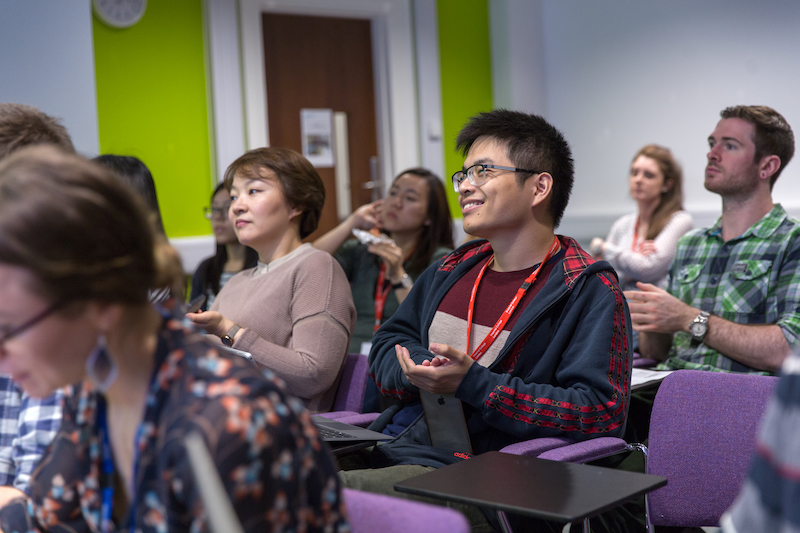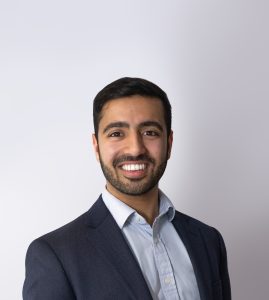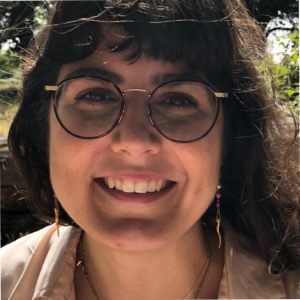
Our MSc Health Policy Programme aims to equip students with the skills to critically evaluate existing and emerging health policies and nurture future health policymakers, both in the UK and internationally. This year, we have digitised and refreshed our course to provide students with a more flexible and engaged learning approach.
We’re pleased to have three students share their stories with us. They talk about their motivations to apply, enjoyable module experiences and how they use the knowledge they gained in their current work. Read their stories below and get a flavour of what it’s like to study with us.
Akshay Lakhani

I finished my undergraduate degree in Management from the London School of Economics and Political Science in 2018. After that, I went into a career in Finance at Deloitte LLP for nearly three years. However during this time, I was diagnosed with tuberculosis, and the near-fatal experience changed my interest and career path: I became passionate about healthcare, as I wanted to prevent others from going through what I went through, and I moved into the health sector.
With my previous experience in finance, I wanted to learn more about the healthcare system. I had no real knowledge of this except as a patient. I am very grateful for the support and care I received from the health workers whilst I was a patient, and they are the reason I’m still alive today. As a patient, however, I saw some problems that I thought could be addressed better than they were at the time. That’s why I wanted to study health policy. I am currently working across two sectors – a start-up company I co-founded during my illness called Copper Cover, which provides innovative self-disinfecting surfaces, and a water treatment company called Hydrotec, which provides technologies across scale, corrosion and bacterial control. I am also working with a Swiss tuberculosis pharmaceutical company on a voluntary basis to raise public awareness of tuberculosis and antimicrobial resistance. Studying the two-year part-time MSc Health Policy Programme at Imperial enables me to balance heavy work demands and my academic commitment.
I really like the hybrid teaching programme that Imperial offers, where you go in for residentials twice a year to meet and interact with people, which is important. You can do the rest of the course virtually, which for me, was critical because I wouldn’t have been able to do it otherwise. There was also no assumed knowledge on the course, and we could learn from each other, as we all came from different backgrounds.
The study experience at Imperial is very applicable to my current work. For example, one aspect of the Health Systems and Policy module requires students to consider innovation and its impact on the various aspects of the broader health system and policymaking arena. My business at Copper Cover is about innovative infection prevention and control measures, and the knowledge gained from this module is translatable to my field of work. Seeing the direct application of what I learned during my course to my profession was fundamental for me.
Silvia Davey

I currently work as a programme manager in the NHS. I lead a programme of work to develop a mental health payments system that funds services so that they can appropriately meet the mental health needs of England’s population.
With a background in public health and mental health, I still wanted to have a theoretical understanding of policymaking, due to the need to take evidence-based approaches at work. That’s why I chose to join the MSc Health Policy Programme at Imperial. I have thoroughly enjoyed gaining critical appraisal skills that I can apply when using published research in my policy-making, and the group work experience has enabled me to make connections with people I might work with in the future.
At times it has been challenging for me to balance my full-time role and the time required for the MSc. I need to spend a few hours after work each day to absorb the material and complete coursework, but the journey has been rewarding. This programme is fulfilling my personal development needs and I’ve started to apply the knowledge and skills from this course to my current role.
Mala Mistry

My first degree is in European Studies and French and I also have a Master’s in Public Management. I started my career working in the public sector and have previously worked in local government. I began working at the Care Quality Commission as Regulatory Policy Officer at the start of the COVID-19 pandemic. Although I’ve worked in a variety of policy roles, I felt a bit stuck with limited exposure to innovative ideas or new and emerging models and concepts. Therefore, I applied for the MSc Health Policy Programme to improve my current skills, knowledge and experience and to diversify my thinking.
As part of the course, we have been required to produce reflective learning journals for each module. For example, for the Health and Society module, I analysed the relevance of various public health theories and how this can have implications for issues and challenges that I have been grappling with in my day job. Deepening my theoretical understanding has helped me to be better able to articulate workable solutions. I think the critical evaluation of evidence in policymaking is crucial. I have learned through this course that policymaking is messy and complicated, can involve a broad range of stakeholder influence at both a national and international level, and financial challenges can have a pivotal role in determining how a policy is initiated, approved and implemented. I believe this course will help me advance my career to a senior-level policy position within the healthcare sector.
Applications are now open for our MSc in Health Policy. If you want to accelerate your career and contribute to high-quality health policy, visit our website for more information and to apply.